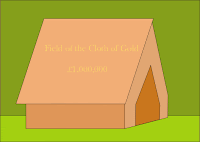Wednesday 30 July 2014
The Magic Kingdom...
The IKEA experience is for everyone who has ever longed to enter those roped-off home interior constructions so beloved of swanky department stores. Unlike these places, IKEA does not crush and humble you with grandeur and opulence. On the contrary, it is gratifying to leave behind scruffy, everyday life-on-the ground and enter a dreamland of streamlined fittings and tactile, muted fabrics. It is even more gratifying to know that you can reproduce this anodised world by buying the items. On the surface, IKEA is just like any department store. There is a familiarity about the sight of goods sold cheap and piled high, the gleaming cups and glasses, the towels, sheets and cushions. But soon, the subtle differences tweak at your consciousness. There are no departmental cash registers ringing merrily in tune with nonexistent piped muzak. Troops of obliging sales’ assistants and household brand names are just as conspicuous by their absence. The actual goods have an eerie look, as if everything has been made by elves and deposited untouched by humans in the vast caverns of the store.
Like Alice’s descent into Wonderland, there is no escaping the walk-through that follows the showrooms. The constant stashes of acid-yellow nylon bags never let you forget the purpose of the footslog. When you surface at the end of the trail, the sight of the warehouse, the fast-food outlet and the play area nudges you back to reality. Now, the child in you has had its day and the actual children take over. With your money spent, it’s game up and party over.
Thursday 3 July 2014
Field of the Cloth of Gold
On last week’s Culture Show, Tom Dyckhoff decided to fly the flag for that ancient construction, the tent, actually the oldest structure of mankind. Originally, “we” draped animal skins over (mammoth?) bones. These structures later developed into the elegant yurt and the majestic tepee. With Glastonbury approaching, Dyckhoff punched the air for eco-friendliness and portability in matters of accommodation. The plus points of the tent are myriad. In less developed societies, tents are made of the detritus of everyday life; wooden poles, animal skins and pieces of felt. Tents can be erected and dismantled with the minimum of disruption to the environment. Tent dwellers own the minimum of possessions and are less likely to be the carbon guzzlers of this earth...the pluses just go on and on.
During the course of the broadcast, Dyckhoff became so excited, that he seemed to be positing the tent as the answer to all of our housing ills. For a brief moment in time, I almost agreed with him. Then, I remembered those intractable human habits of having to wash and use the loo, of needing gas and electricity for eating, heating and lighting and of simply and stubbornly wanting to settle down and in one place – and how dare we. But even if we could get over all of this, it is my guess that it would not make a darned bit of difference to the shortage of affordable housing. If tent chic caught on, this form of accommodation would become every bit as exclusive and expensive as the house, the flat and the garden shed. Just imagine what the billboards might say: - exclusive new tent development - Field of the Cloth of Gold – view our show tent today – from £1,000,000 for a two-compartment tent...what do you think?
Subscribe to:
Posts (Atom)





